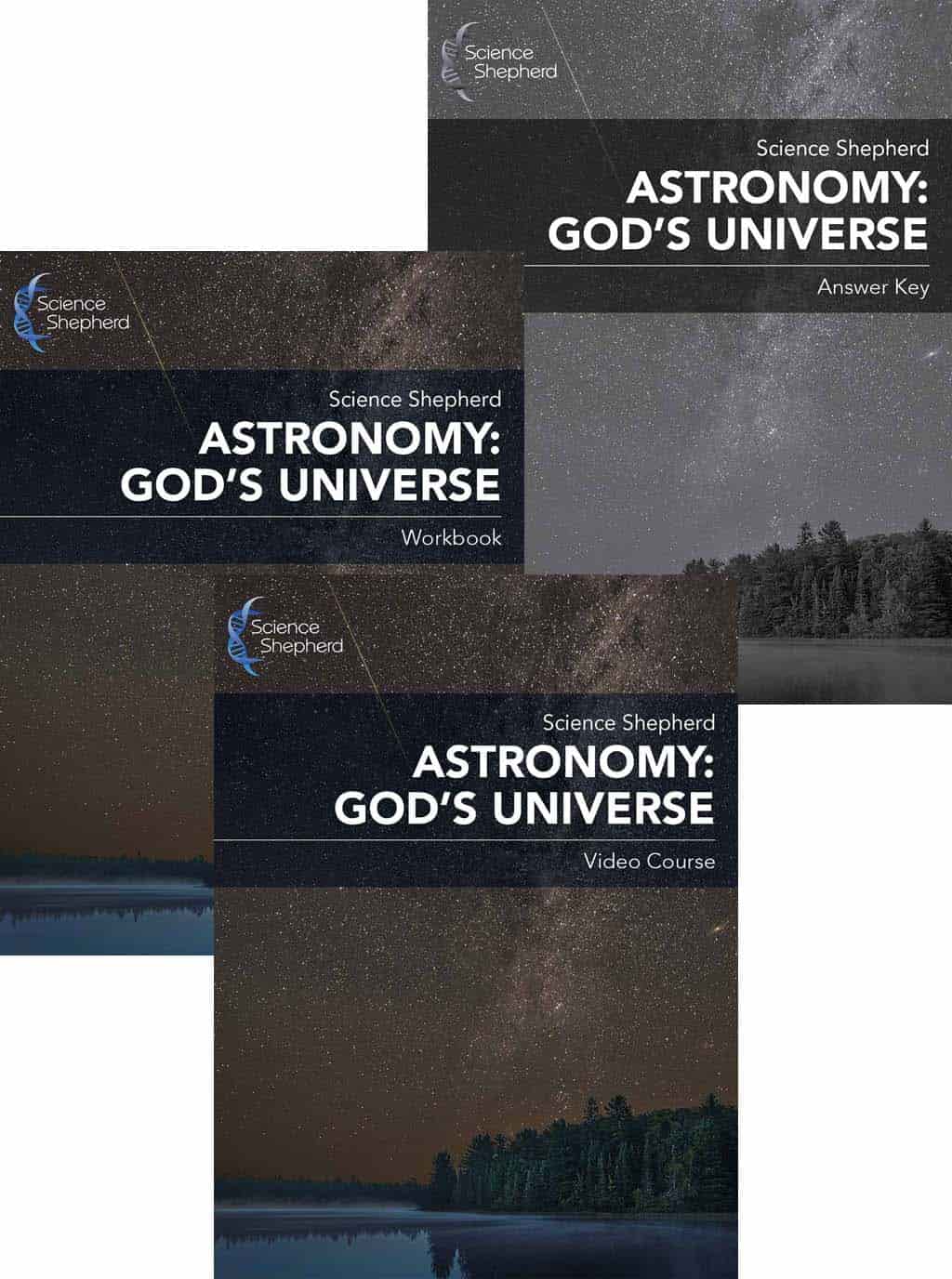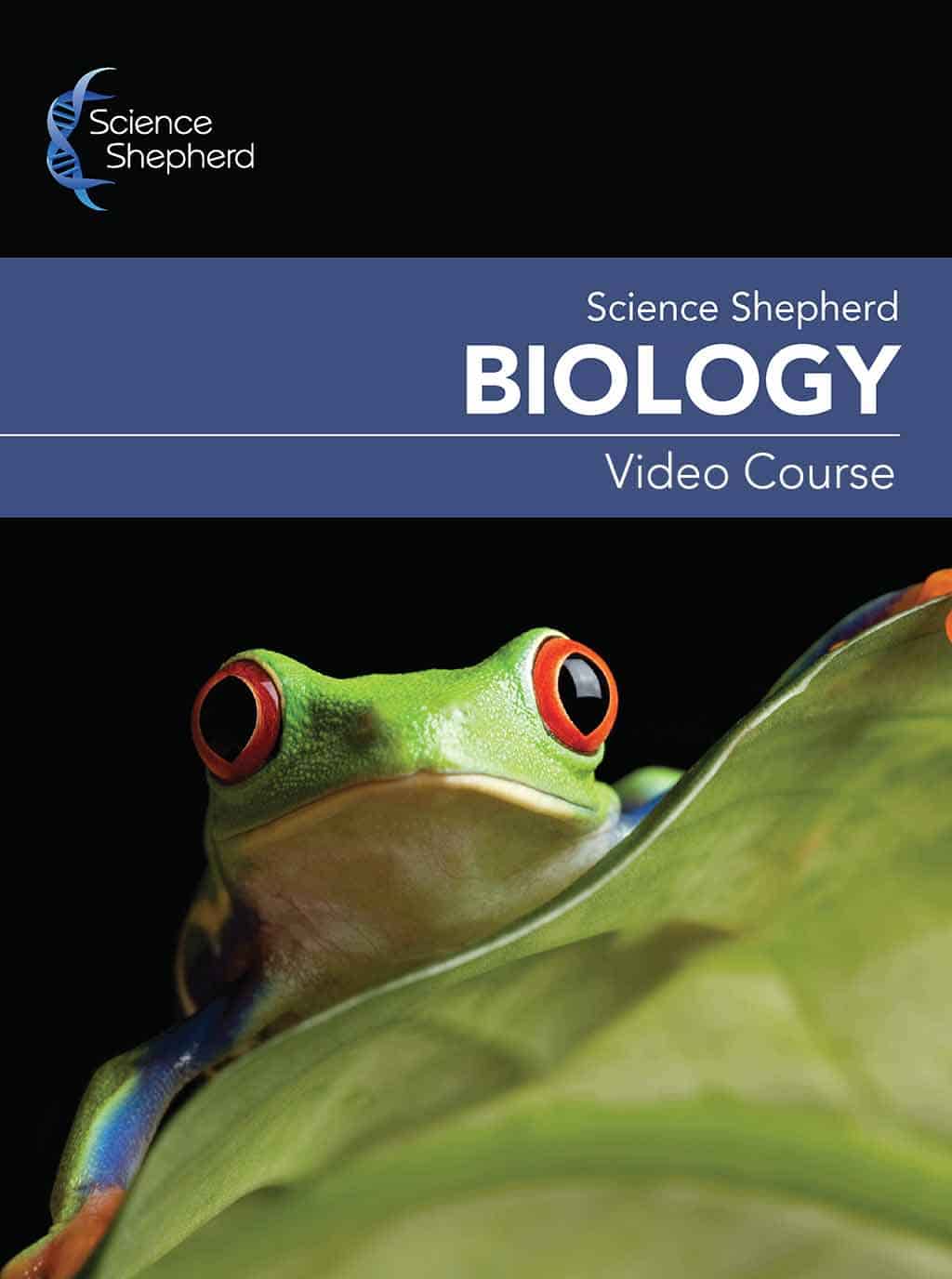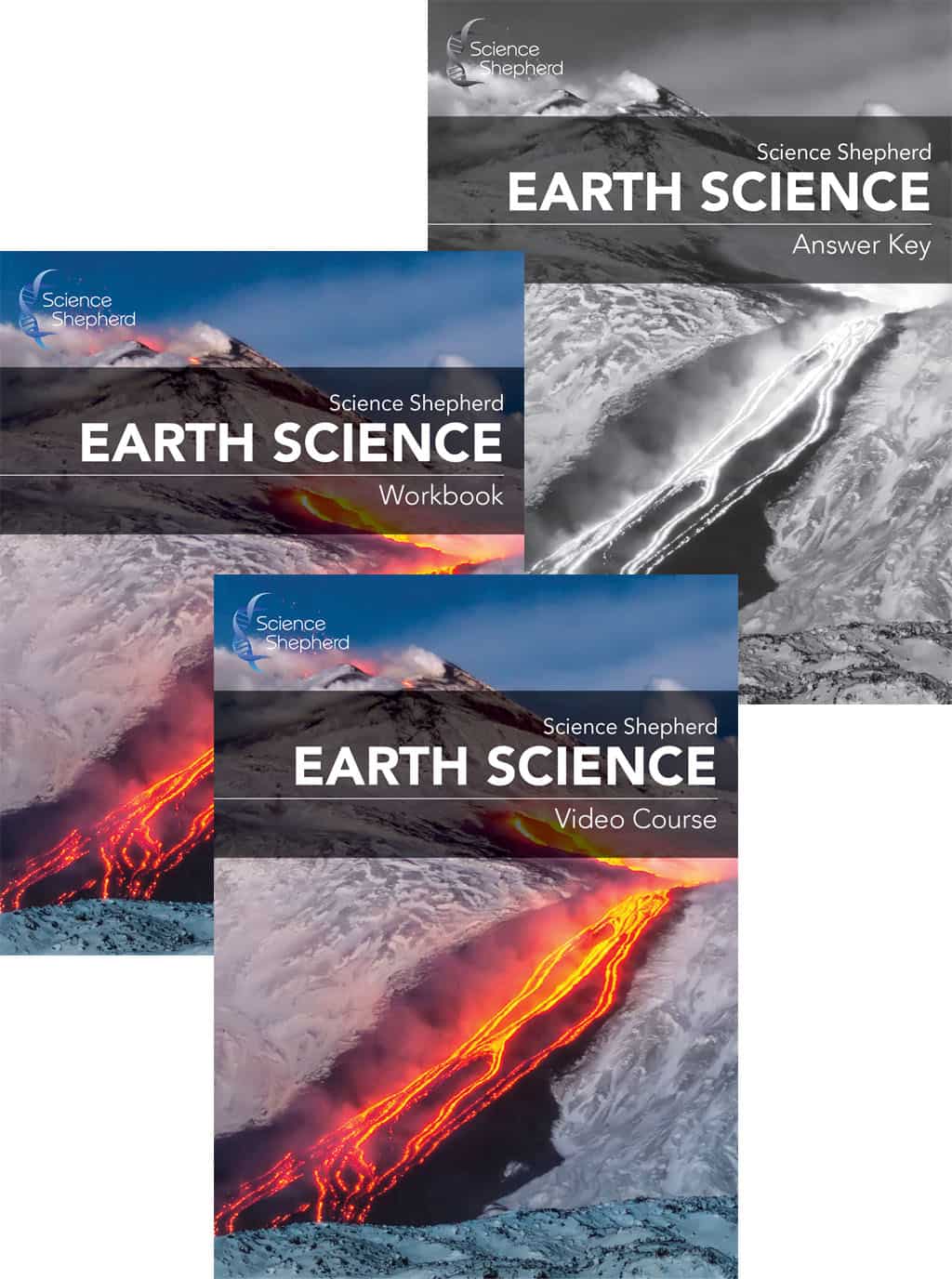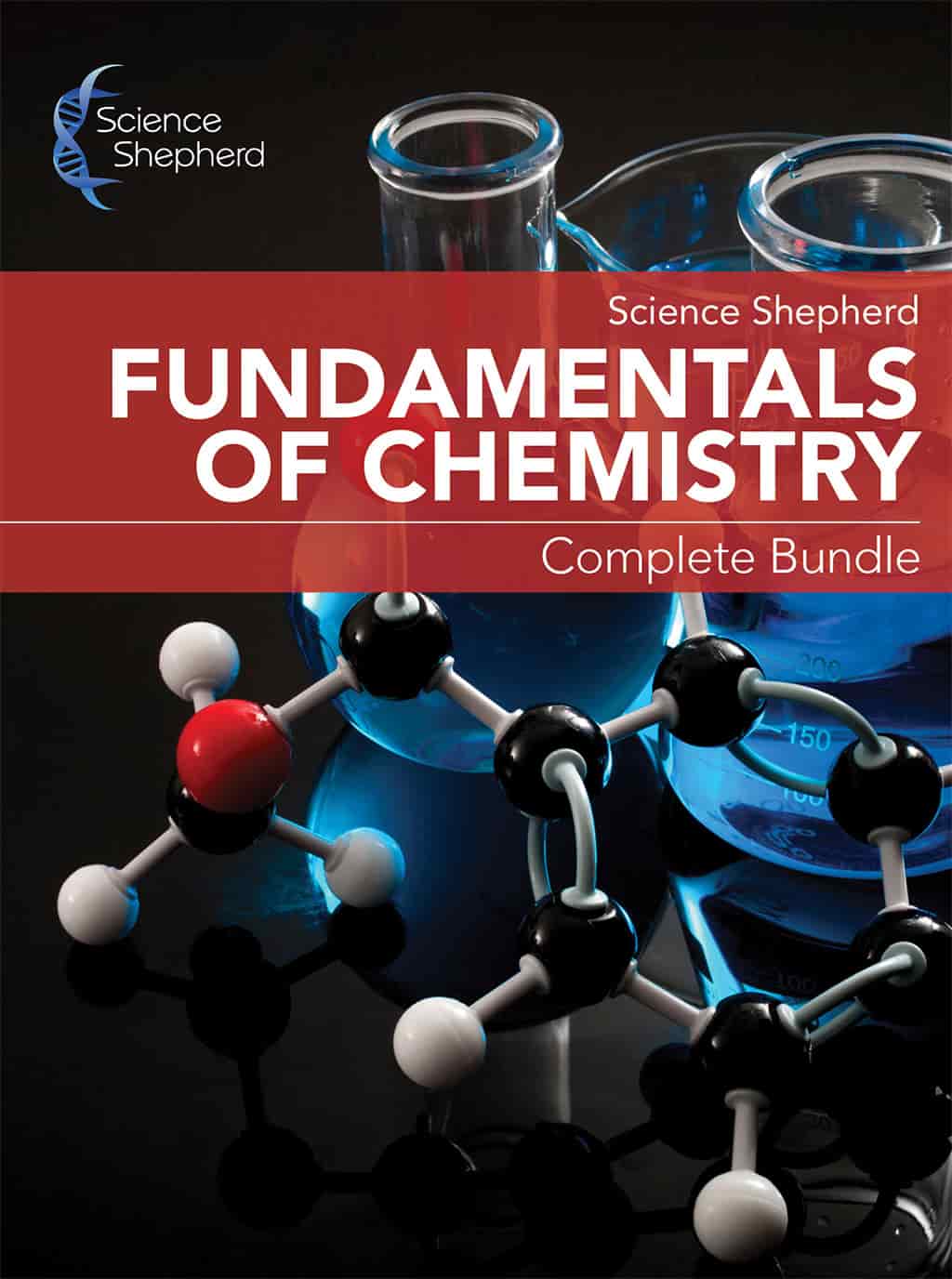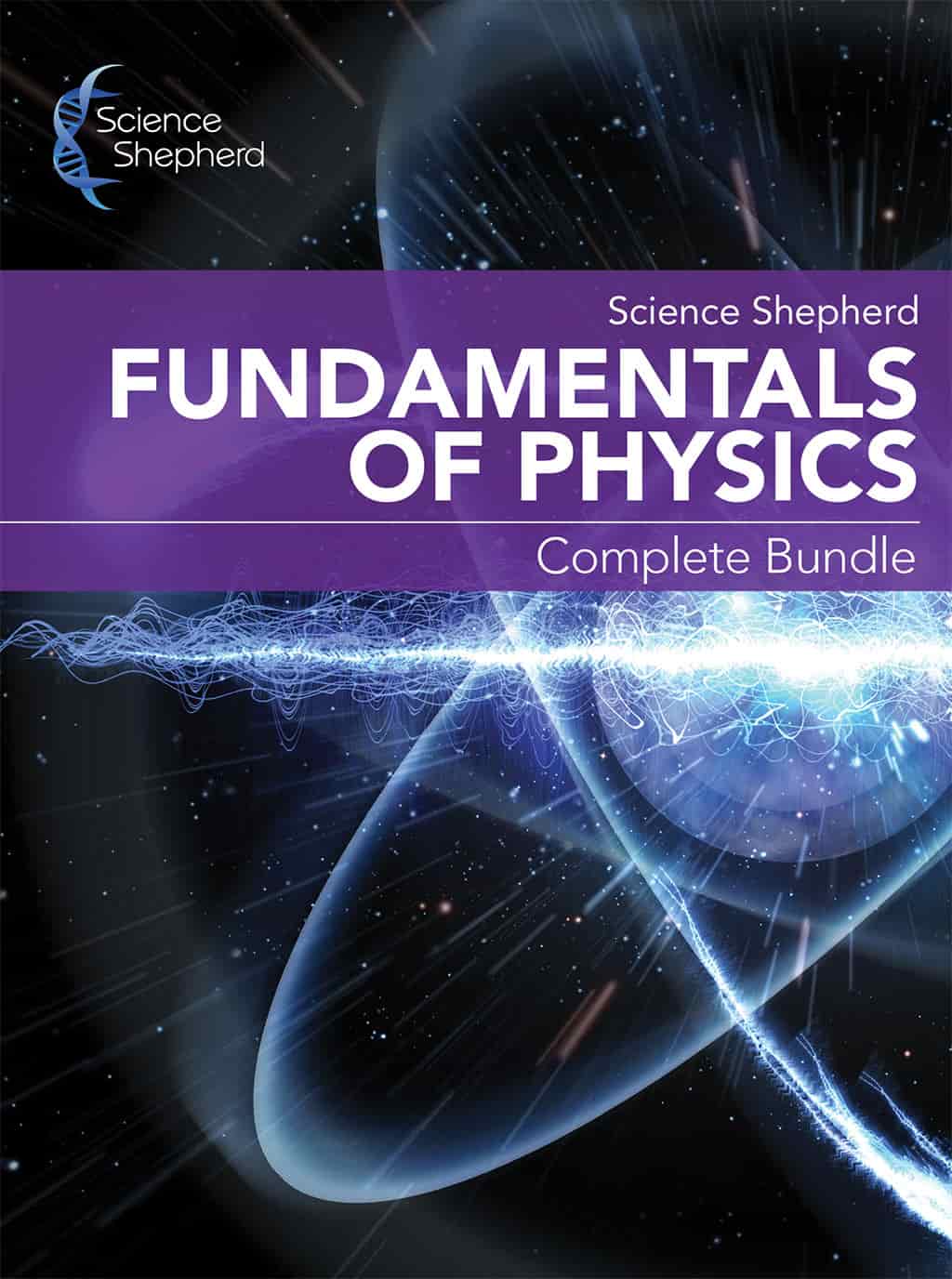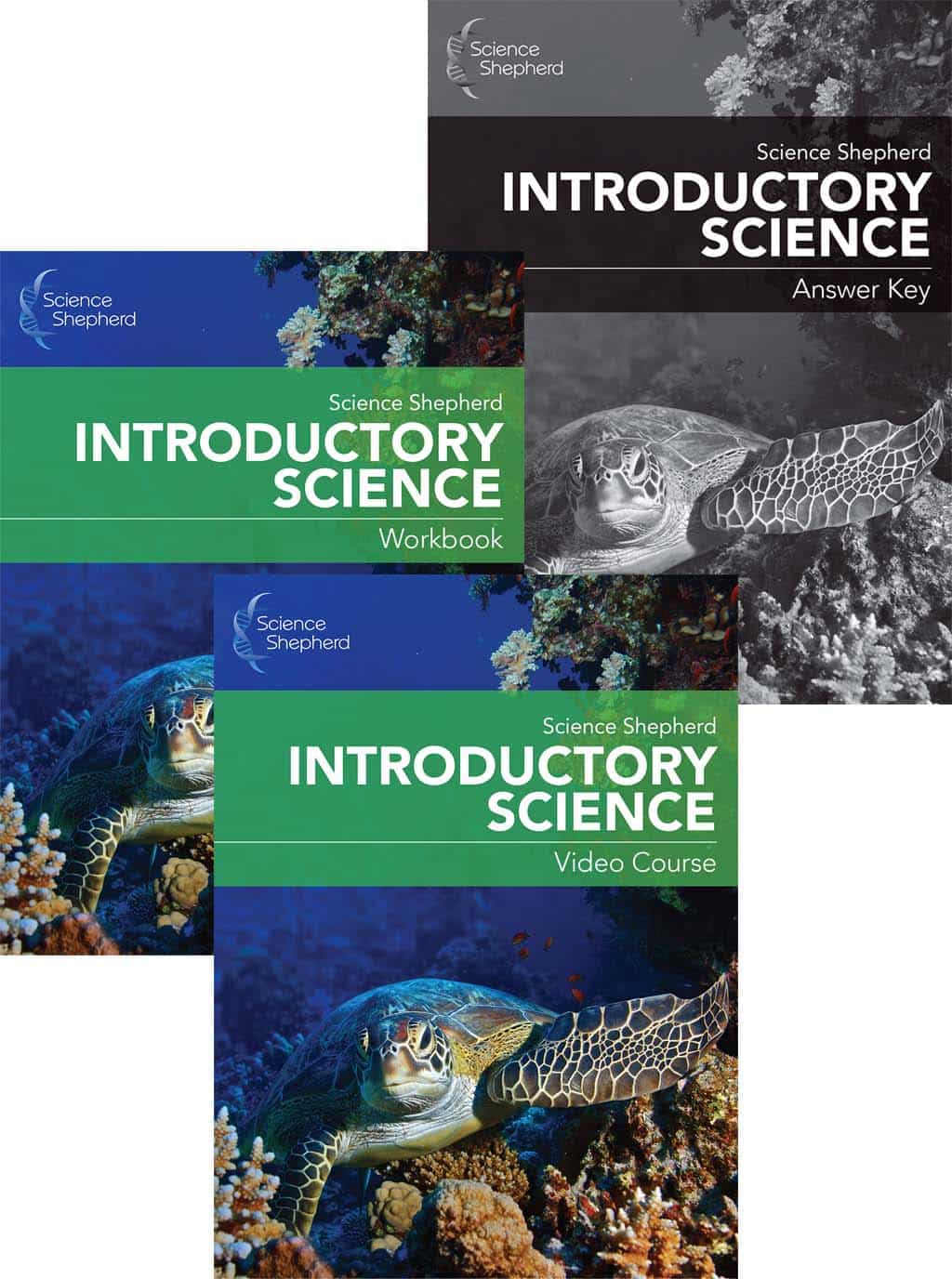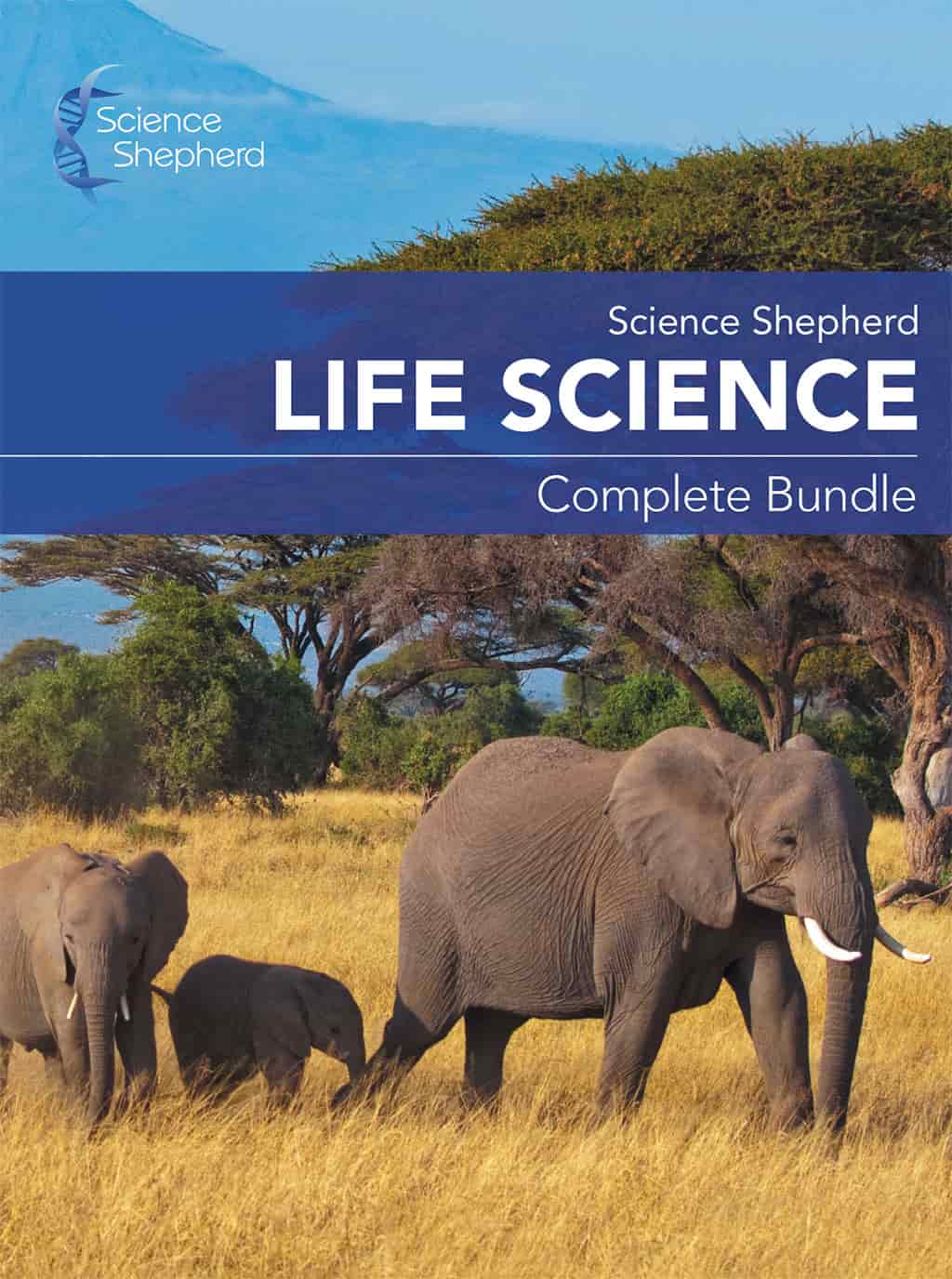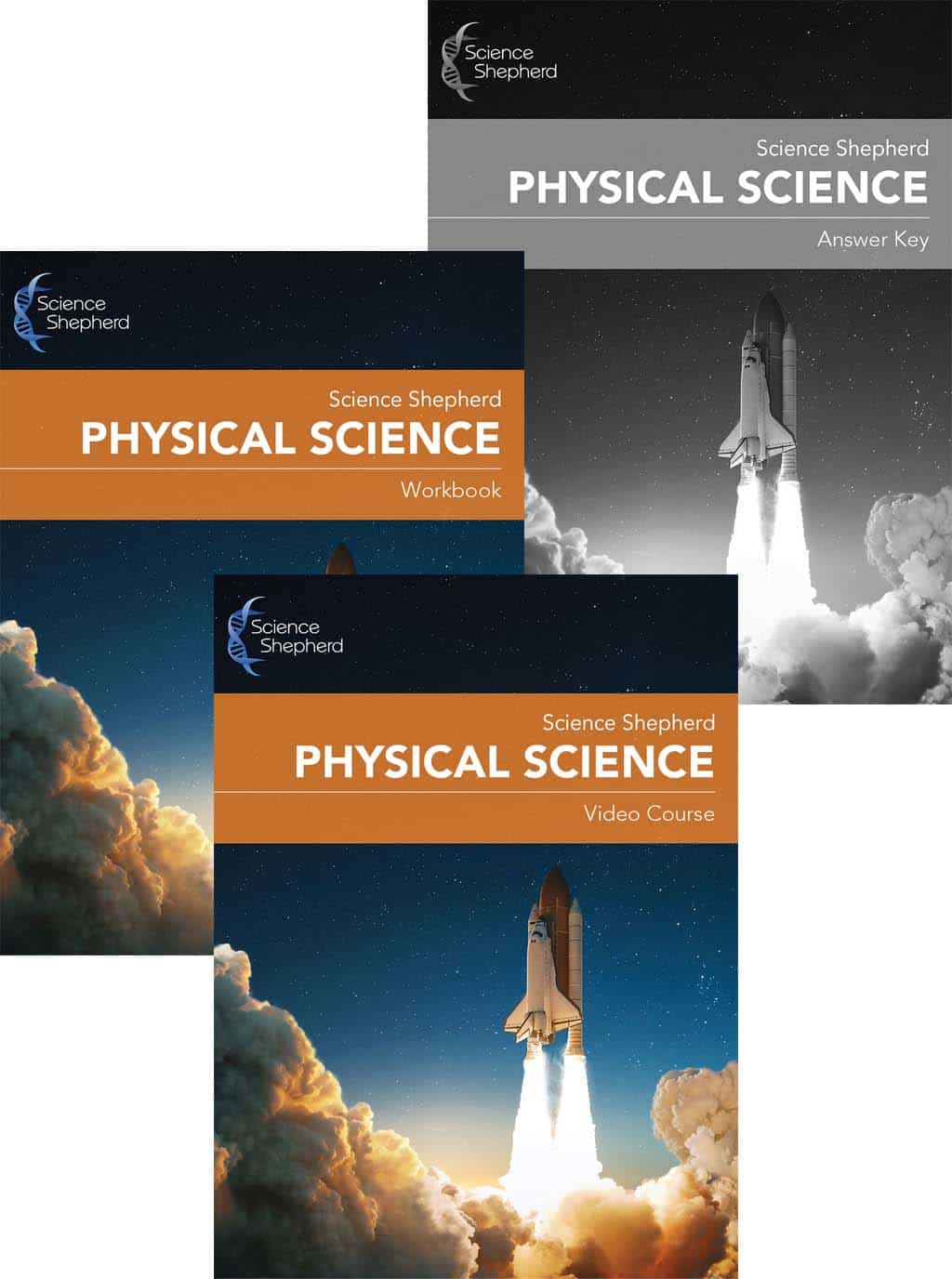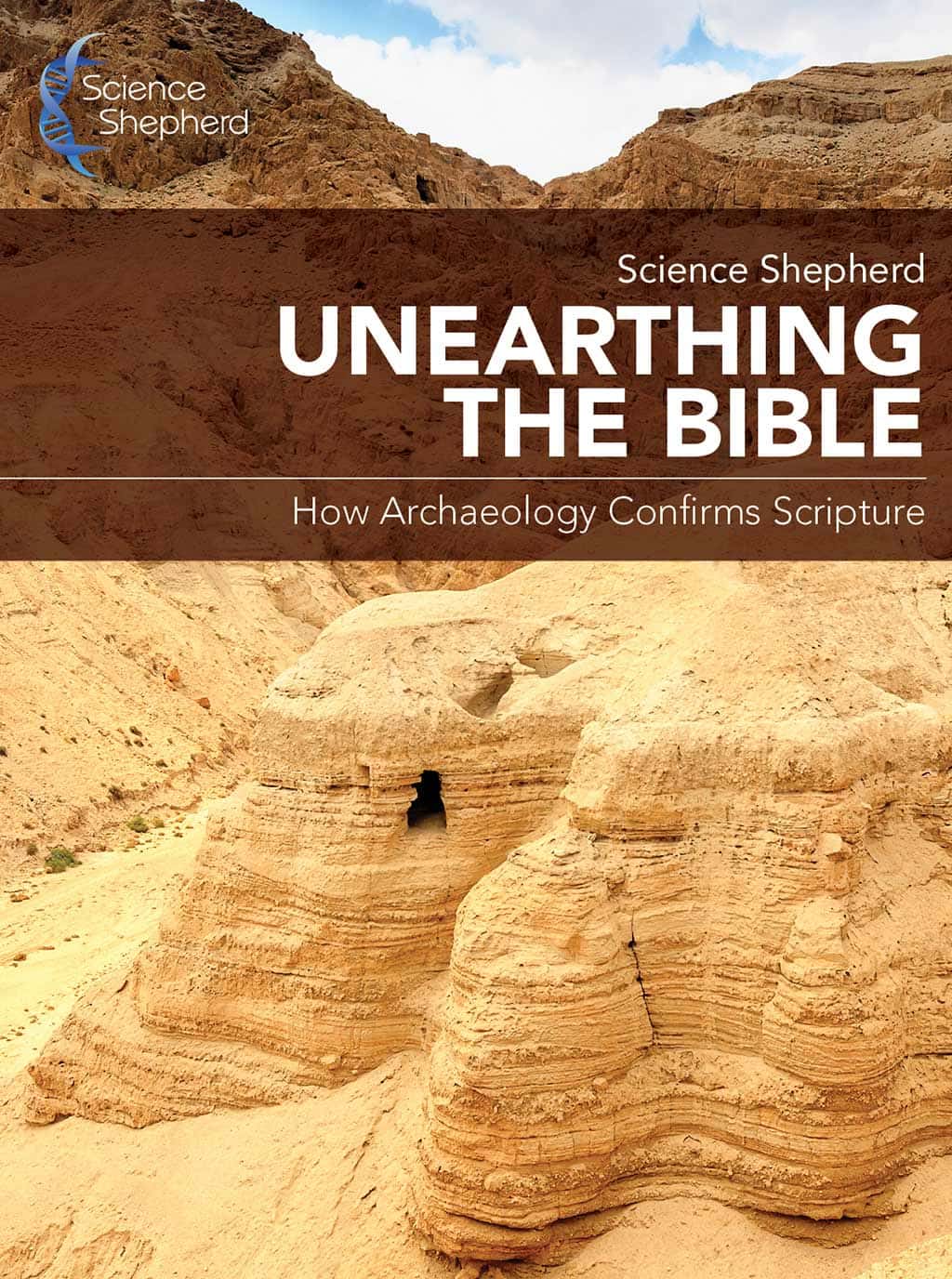Recommended Course Progression
by Bill Hardin October 31, 2020 8 min read

How to Best Use Science Shepherd Curriculum in Your Homeschool
We've come a long way since our early days with one middle school Life Science curriculum and a high school Biology course! Over the last few years, we have released new homeschool science curriculum at multiple grade levels and have even more in the works. As we continue to grow and add more classes, we know it is important to help families decide which class is right for them. To do just that, we've put together a recommended homeschool science course and grade progression that shows each Science Shepherd course and what grades they are intended for.
We do want to stress that this is merely our recommended course progression. What works best for your family, or even an individual student, may look different. We always encourage parents to leverage the flexibility afforded by homeschooling and modify material or schedules to fit their needs. That might look like using a curriculum at a different grade level than recommended, completing the lessons within a particular course in a different order than the schedule suggests, or completing a course over a longer timeframe than it is presented. The most important consideration is doing what will help your children succeed.
And so, here is the "official" recommended course and grade progression for Science Shepherd Homeschool Curriculum. You'll notice that all of our courses cover multiple ages / grades. This is to indicate that a course can be used at any point within that range, depending on what a student has already studied and his/her interests. Additionally, many classes are listed as "possibly" for a particular grade to show that, given the flexibility mentioned above, it may be appropriate to use a course for a grade or two beyond what we normally intend it for. We'll explain this further for each class it applies to.
Alternatively, you can find a grade-by-grade overview of curriculum options here, if that is a more helpful format to you.
Course Finder Quiz & Free Previews
Need help identifying the right Science Shepherd homeschool course for your student?
Use our short quiz to get a personalized recommendation in as few as 4 questions,
then enroll in our free previews to make sure it's the right pick for you.
We'll update the grid and course descriptions below as new material is released.

Introductory Science
Grades 1-5 | Ages 6-11
Our Introductory Science course is recommended for grades 1-5 or ages 6-11. It is an entirely video-based curriculum, with accompanying student workbook used with each lesson to reinforce key concepts. The workbook is available in two levels; Level A for younger students (grades 1-3, ages 6-9), and Level B for older students (grades 3-5, ages 8-11, or older students new to the formal study of science). Students in both Levels may watch the videos together while completing their own workbook. Introductory Science is a broad course, covering many topics including creation week, meteorology, geology, oceanography, plants and animals, physical science, and more. Some families may find it helpful for a student to complete Level A one year and Level B later on. Introductory Science is presented in a 35-week schedule.
Ready to get started? Save 10% with the Introductory Science bundle!
Earth Science
Grades 2-6 | Ages 7-12
Earth Science expands upon select topics from Introductory Science to guide students to a deeper understanding of geology, volcanology, paleontology, oceanography, meteorology, climatology and energy. The video-based curriculum is available in two levels: Level A for grades 2-4 (ages 7-10) and Level B for grades 4-6 (ages 10-12), with age-appropriate workbooks available for each level to help students engage with each lesson. Students in Level A and Level B may work together for most lessons, with Level B students completing additional "Level B only" content. Earth Science is scheduled over 35 weeks, with 3-4 (Level A) or 4-5 (Level B) videos per week, on average. Compared to Introductory Science, Earth Science expects slightly stronger reading, comprehension and critical thinking skills.
Earth Science right for your family? Save 10% with the Earth Science curriculum bundle!
Physical Science
Grades 3-6 | Ages 8-12 (and beyond)
Physical Science builds upon the basic principles established in our Introductory Science, with a focus on chemistry, physics and astronomy. If the student has not taken our Introductory Science course, it is highly recommended that s/he have formal science experience prior to taking this course. Physical Science is a video-based curriculum with a Level A Workbook formatted for younger students (grades 3-5, ages 8 to 11) or Level B Workbook formatted for older students (grades 4-6, ages 9 to 12). Older students who have not yet formally studied physical science (chemistry and physics, in particular) may benefit from taking Physical Science Level B prior to our Fundamentals classes. The course is scheduled over 35 weeks, with 3 video lessons per week. Compared to Introductory Science, Physical Science expects a slightly higher reading level for the Level A and Level B students and for the Level B students also expects the ability to do basic two-digit-number addition and subtraction.
Time to get started? Save 10% with the Physical Science homeschool curriculum bundle!
Unearthing the Bible
Grades 3-8 | Ages 8-14 (and beyond)
Unearthing the Bible is a unique mix of archaeology, history, social studies, and apologetics, recommended for grades 3-8 or ages 8-14. By studying the field of archaeology, students will learn that the history recorded in the Bible is confirmed by the history found in the ground. It is a video-based curriculum that includes a PDF workbook and answer key. While the level of difficulty is best suited for 3rd to 8th grades, we believe the content of the class is of interest and beneficial to older students (even whole families) and so the class could possibly be used for 9th to 12th grade as a quarter elective or partial credit. The 39 lessons of Unearthing the Bible are presented in a 15-week schedule. Compared to Introductory Science, Unearthing the Bible expects slightly stronger reading, comprehension and critical thinking skills.
Ready to explore? Get started with Unearthing the Bible today!
Anatomy & Physiology
Grades 4+ | Ages 9+
Our newest course, Anatomy and Physiology guides students through 11 systems of the human body. The video-based curriculum is available in three levels: Level A for grades 4-6 (ages 9-12), Level B for grades 6-9 (ages 11-15), and Level C for grades 9 and up (ages 14+), with age-appropriate workbooks available for each Level to help students engage with the video lessons. Compared to Physical Science, Anatomy & Physiology expects slightly stronger reading, comprehension and critical thinking skills.
Coming soon!
Astronomy: God's Universe
Grades 5-9 | Ages 10-15 (and beyond)
One of our personal favorites, Astronomy: God's Universe explores the solar system, stars, galaxies, and more, all while reinforcing the sufficiency of Scripture and the Genesis creation account. The video-based curriculum is available in two levels: Level A for grades 5-7 (ages 10-13) and Level B for grades 7-9 (ages 12-15). Each level has its own workbook to help guide students through the video lessons. Students in Grades 10-12, particularly those who have not previously studied astronomy, may find the material in Level B insightful and challenges their critical thinking, and so the class may be appropriate for them, too. Astronomy: God's Universe is presented in a 36-week schedule. Compared to Physical Science, Astronomy: God's Universe expects slightly stronger reading, comprehension and critical thinking skills.
Set off on an adventure! Save 10% on our Christian astronomy curriculum bundle!
Life Science
Grades 6-10 | Ages 11-16 (and beyond)
One of our original releases in 2008 and now on its 2nd Edition, Life Science is a middle school curriculum that prepares students for high school biology. The foundation of the class is the textbook, with a comprehensive video course available for those who prefer that format or find the combined text/video more productive than either format alone. A workbook is also available to accompany each video lesson. Topics covered include the characteristics and chemistry of life, cells, genetics, classification, human anatomy & physiology, ecology, and more. An optional lab manual that integrates into the curriculum is available for hands-on learning. Life Science may be appropriate for grades 9-10 for those students who have not had much science experience or as a "non-college prep" class for those who have no interest in pursuing science further than high school. Life Science is presented in a 36-week schedule. Compared to Physical Science, Life Science expects stronger reading (it is the first course in our sequence with a textbook), comprehension and critical thinking skills.
Life Science right for your student? Save 10% with the Life Science Complete Bundle.
Fundamentals of Chemistry
Grades 7-10 | Ages 12-16 (and beyond)
Fundamentals of Chemistry is another high school preparatory class for middle school. The course is text-based, and includes study in the areas of scientific measurement, atoms, bonding, reactions, nuclear chemistry, and more. A comprehensive video course is available that follows the daily reading schedule, as well as an accompanying workbook. An optional lab manual that integrates into the curriculum is available for hands-on learning. Fundamentals of Chemistry may be appropriate for 9th and 10th graders who prefer an introductory course prior to taking a full high school chemistry program, or as a "non-college prep" high school chemistry. Fundamentals of Chemistry is presented in a 34-week schedule. Compared to Life Science, Fundamentals of Chemistry expects similar reading, comprehension and critical thinking skills, plus a basic understanding of algebra.
Ready to get started? Save 10% with our complete homeschool chemistry bundle.
Fundamentals of Physics
Grades 8-10 | Ages 13-16 (and beyond)
The final Science Shepherd high school preparatory course available for middle school is Fundamentals of Physics. This text-based class studies the three states of matter, Newton's laws, waves, light, sound, nuclear physics, and more. A comprehensive video course is available, as well as an accompanying workbook. An optional lab manual that integrates into the curriculum is available for hands-on learning. Fundamentals of Physics may be appropriate for 9th and 10th grade students who need an introductory course before taking a more advanced physics course, or as a "non-college prep" high school physics. Fundamentals of Physics is presented in a 35-week schedule. Compared to Fundamentals of Chemistry, Fundamentals of Physics expects similar reading, comprehension, critical thinking and algebra skills.
Time for physics? Save 10% with our complete homeschool physics bundle.
Planning the middle school years? We recommend our three middle school courses be taken in the order Life Science (6th grade), Fundamentals of Chemistry (7th grade), Fundamentals of Physics (8th grade).
Biology
Grades 9+ | Ages 14+
Biology, now on its 3rd Edition, is a robust high school program, with a 700+ page textbook that serves as the foundation of the course. There is also an in-depth video course available for students who learn better with that format or with a mixed text/video format. Topics covered include basic biochemistry, cell structure and function, genetics, classification, human anatomy & physiology, a critical review of the creation and evolution origin models, ecology, and more. A lab component with lab manual and optional video presentation of all labs is also available that integrates seamlessly with the class schedule or can be completed as a standalone lab class. Biology is appropriate for any high school grade, but it is recommended that students complete Life Science or a similar high school-prep course before taking the class. Biology is presented in a 36-week schedule. Compared to Life Science, Biology expects stronger reading, comprehension and critical thinking skills, plus a basic understanding of algebra.
Ready for a deep-dive into biology? Save up to 10% with a Biology videos bundle.
We hope this is a helpful guide as you plan your homeschool science schedule. If you have any questions about our material, please feel free to contact us.
Until next time!
Science Shepherd
Sign-Up Today!
Subscribe for the latest news and receive 10% off and a FREE resource!
Recent Articles
Categories
- Anatomy & Physiology
- Astronomy
- Biology
- Board Books
- By Grade
- Chemistry
- Creation
- Curriculum
- Earth Science
- Evolution
- Free
- Giveaways
- Homeschool Help!
- Homeschooling
- Interview
- Introductory Science
- Life Science
- News
- Physical Science
- Physics
- Reviews
- Sale
- Science
- Science Challenge
- Science Focus
- Unearthing the Bible
10% Off Your Next Order
Subscribe to our newsletter and we'll send you a code for 10% off an order
plus a free download of 5 Scientific Ways Your Kids Can Defend Their Faith.


